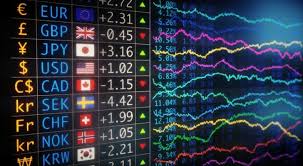Forex Trading Training Mastering the Markets 1710310875
Азартные площадки без требования подтверждения личности в две тысячи двадцать пятом году
28/10/2025Understanding Forex Trading Definition and Insights
28/10/2025
Forex Trading Training: Mastering the Markets
Forex trading has become increasingly popular as individuals seek to capitalize on the dynamic and liquid nature of the global currency markets. Whether you’re a complete beginner or someone with some experience in trading, the right training can equip you with the skills and strategies needed to be successful. In this article, we will explore essential aspects of forex trading training and provide you with a roadmap to becoming a skilled trader. If you’re looking for quality resources, check out forex trading training Brokers Argentina for reliable brokers to get you started.
Understanding Forex Trading
Before diving into training, it is crucial to understand what forex trading entails. The forex market is the largest and most liquid financial market in the world, where currency pairs are traded. The primary goal of forex trading is to buy low and sell high, profiting from the fluctuations in currency values. Familiarity with key concepts such as pips, lots, leverage, and margin will be foundational as you begin your journey into forex trading.
The Importance of Forex Training
Trading in the forex market without proper training is akin to walking into a casino without understanding the odds. Forex training helps traders develop a systematic approach, minimize risks, and enhance their chances of success. Additionally, it aids in understanding market mechanics, technical analysis, fundamental analysis, and risk management strategies. A structured training program provides the groundwork for confident trading decisions and sustainable profitability.
Key Components of Forex Trading Training
1. Learning the Basics
The initial stage of forex training should focus on acquiring knowledge about the forex market. This includes learning about currency pairs, how to read quotes, and understanding market hours. You should become familiar with terms such as spread, order types, and broker commissions. Different resources, including books, online courses, and webinars, can be utilized during this phase.
2. Technical Analysis
Technical analysis is the study of historical price patterns and market trends using charts and technical indicators. In your training, you should learn how to read candlestick charts, identify support and resistance levels, and use indicators like Moving Averages, RSI, and MACD. Practical application of these concepts through simulated trading is essential to fully grasp technical analysis.
3. Fundamental Analysis

Fundamental analysis involves evaluating economic, social, and political factors that influence currency values. Understanding how economic indicators such as employment rates, GDP, and inflation impact currency movements is crucial. Training in fundamental analysis will allow you to better predict market trends based on economic news releases and geopolitical events.
4. Risk Management
Effective risk management is vital for long-term success in forex trading. Your training should cover risk management techniques such as setting stop-loss and take-profit levels, calculating position sizes, and managing leverage. The goal is to protect your capital and avoid significant losses that can derail your trading career. By developing a robust risk management strategy, you will trade with more confidence and discipline.
5. Developing a Trading Plan
A well-defined trading plan acts as a roadmap for your trading activities. Your training should guide you in crafting a personalized trading plan that outlines your trading goals, market analyses techniques, risk management strategies, and review processes. A trading plan helps maintain discipline and consistency in your trading approach, contributing to overall success in the forex market.
Choosing the Right Forex Training Program
Selecting an appropriate training program is a critical step in your forex trading journey. Look for programs that offer a blend of theoretical knowledge and practical application. Ensure the trainers have substantial experience in the forex market and can provide real-world insights. It is also beneficial to seek out programs with a supportive community where you can engage with fellow learners and experienced traders.
Practicing Your Skills
Once you have completed your training, practice is key. Utilize demo accounts provided by most brokers, including those listed on Brokers Argentina, to practice trading with virtual money. This will allow you to apply your skills, test strategies, and gain confidence without risking your capital. Continuous practice will help you refine your trading skills and develop your trading style.
Staying Updated and Continuing Education
The forex market is continually evolving, and successful traders must adapt to changing market conditions. Engage in ongoing education through webinars, articles, and market analysis reports to stay on top of market trends. Follow reputable forex news sources and maintain a trading journal to review your trades and learn from your experiences.
Conclusion
Forex trading offers tremendous opportunities for those willing to invest time and effort in training. By understanding the market dynamics, mastering technical and fundamental analysis, implementing effective risk management, and developing a sound trading plan, you will be well-equipped to navigate the forex market. Remember that trading is a journey, not a sprint. With the right education, dedication, and continuous learning, successful trading can be achieved.
